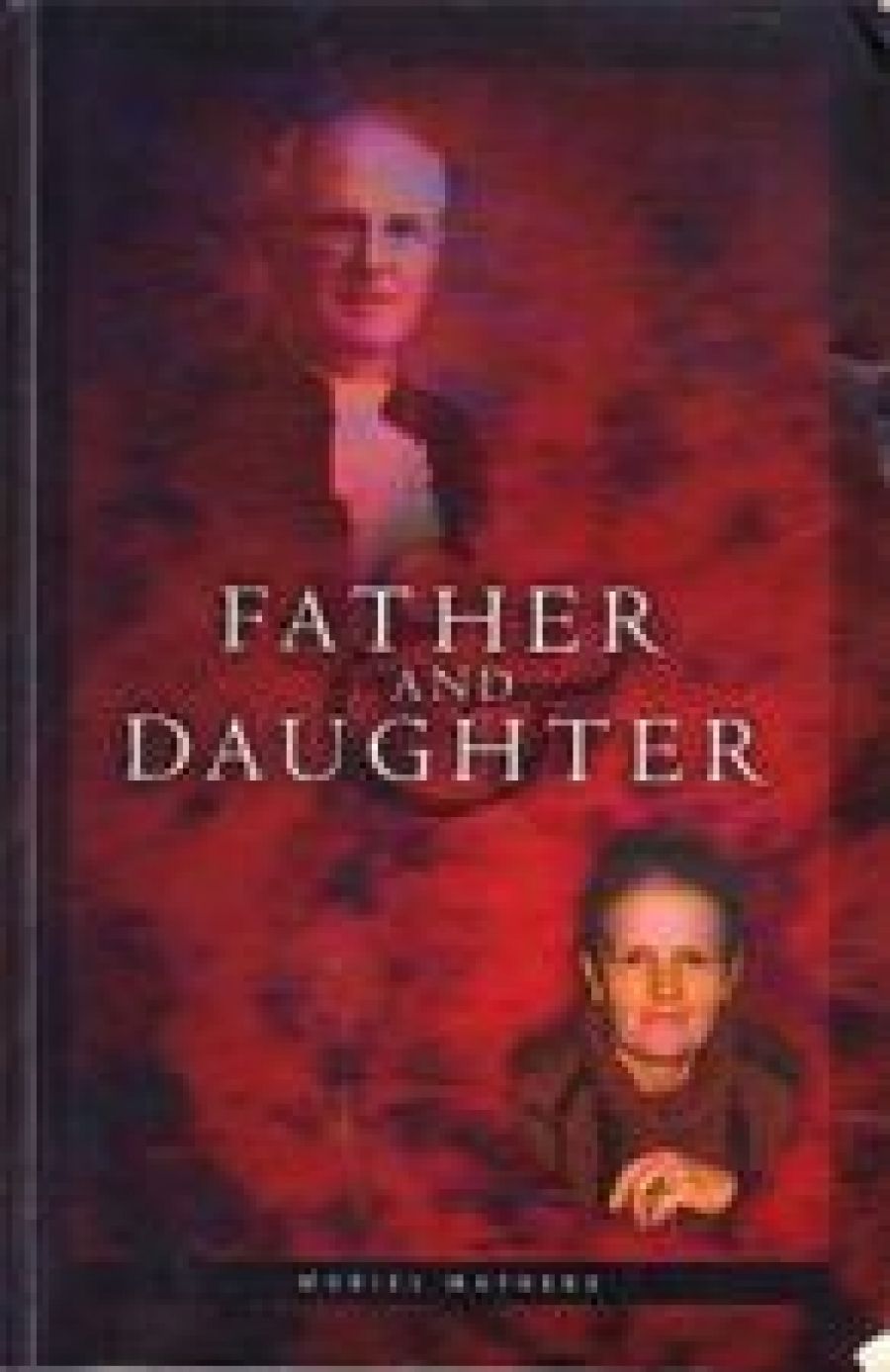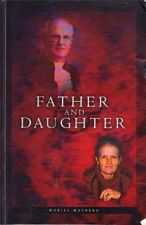
- Free Article: No
- Contents Category: Memoir
- Review Article: Yes
- Article Title: Rounding out the father
- Online Only: No
- Custom Highlight Text:
This book contains two discrete memoirs: the first by Clifford Norman Button, a Presbyterian minister; the second by his daughter, Muriel Mathers. Despite immense social changes in the period they cover (1888 to the present), there are many similarities between the two personalities and their work in the world.
Dr Button, the first memoirist, was obviously a driven character. His manuscript, entitled The Unknown Londoner, was completed just before his death in 1950 and remained in his daughter’s possession until she included it here, edited and abridged, under the title ‘Murmurings’. As well as a chronological account of his life, ‘Murmurings’ includes enough of Button’s reflections on his interests and beliefs to, in her words, ‘round out the man’.
- Book 1 Title: Father and Daughter
- Book 1 Biblio: Spectrum Publications, $32.95 pb, 270 pp
- Book 1 Cover Small (400 x 600):

- Book 1 Cover (800 x 1200):

Dr Button, the first memoirist, was obviously a driven character. His manuscript, entitled The Unknown Londoner, was completed just before his death in 1950 and remained in his daughter’s possession until she included it here, edited and abridged, under the title ‘Murmurings’. As well as a chronological account of his life, ‘Murmurings’ includes enough of Button’s reflections on his interests and beliefs to, in her words, ‘round out the man’. The memoir begins with his Dickensian childhood as the twelfth and youngest son of a strict and impoverished London family. His father ran a boarding school based at home, Woodgrange College, and his young son was, at the age of four, quite literally shoved through its door, returning to the ‘home’ area only on Sundays. Leaving at fourteen, Button set out on a determined course of self-improvement. He emigrated in 1908, studied part-time for an arts degree, attended theological college and became a Presbyterian minister. He eventually acquired higher degrees from the University of Sydney, the Union Theological Seminary in New York and, finally, a PhD from Edinburgh.
Obviously an enthralling speaker, Button was sought after and ‘called’ to the most prestigious parishes. Tiptoeing around the pit of ecclesiastical politics, he even managed to slip easily from the ‘Auld Kirk’ to the ‘Wee Frees’ in Edinburgh; taking the sensible view that there was little difference between the two, no matter how bitter the doctrinal split – and it certainly was bitter. He finally served twenty-two years at St Andrews Presbyterian Kirk in Ballarat and was twice elected Moderator, an unprecedented honour. He died in 1950.
His memoir is a joy to read: witty, urbane, anecdotal. The best stories concern his time as a bush parson at Bingara in the 1920s; they include hilarious yet sympathetic accounts of a bush christening, wedding and funeral. At the same time, there is little spontaneity; the jokes and anecdotes come across as the oft-told repertoire of a polished after-dinner speaker. They give little sense of the real rather than the public man. In fact, the author’s emotional life is barely acknowledged. Genial to the outside world, at home he was, according to his daughter, ‘strict, unemotional, cold [and] humourless’. His wife, whom he married in his late thirties, has barely a walk-on part. He refers to her as ‘the other parent’, their first baby as ‘it’. He was a loner, given to long solitary walks. The distance from Ballarat to Melbourne was, it seems, as nothing to him, and he once trudged – with unhappy consequences – from Goulburn to the Jenolan Caves. Little wonder that his daughter describes him as a ‘self-involved’ and ‘complex’ man.
Growing up Presbyterian, I encountered many such ministers, learned men and charismatic preachers. I wondered at the time whether this was all performance, or whether it was fuelled by a passion for the faith. After all the jocularity, the self-improvement, the talk of ‘calls’ to this or that parish and the level of stipend, just when I begin to think that this is all that there is, Button answers my question. ‘[M]y religion,’ he writes, ‘has been the all-absorbing passion of my life ... my main source of light, heat and power. Neglected or forgotten, it has accounted for ... every wrong done to myself and to others.’ Completely humbled, I turn to ‘Musings’, the memoir of his daughter (who is the sister of ex-Senator John Button), and move straight-away into the ebullient world of sexual politics in the 1960s and 1970s.
Returning from London to Australia in 1968 with two small children and her marriage to the novelist Peter Mathers in poor shape, Muriel Mathers set up the agency Freelance Work for Women to cater for unemployed or under-employed women in Melbourne. Mathers was a dynamo, speaking to key groups and proselytising on radio. She ran FWW from her home until it flourished, then added the Freelance Library Service in 1976. She worked later for Community Aid Abroad in Mozambique and Papua New Guinea; and for homeless people in Melbourne. Hers has obviously been a tireless yet compassionate life, full of energy and activism.
As for the similarities between father and daughter, the most obvious is the zeal with which both pursued their goals. There is also a basic decency, perhaps a family characteristic, which prompted each to work for the good of others. Both are reticent about their private life: from Mathers we learn little of the celebrated writer to whom she was married for seven years, or of the emotional cost of their parting and divorce. Later in the text, a page or two is devoted to an objective summary of her relationships with ‘lovers, friends, acquaintances – semi-permanent, long-term, short-term’, before she ‘repartners’ (cold, cold word) at sixty. This reticence is not a fault, simply a characteristic of her account, as it is, in a different way, of her father’s. Nevertheless, while her memoir is perhaps not as humorous and polished as his, she emerges as a much more relaxed and sympathetic person.


Comments powered by CComment